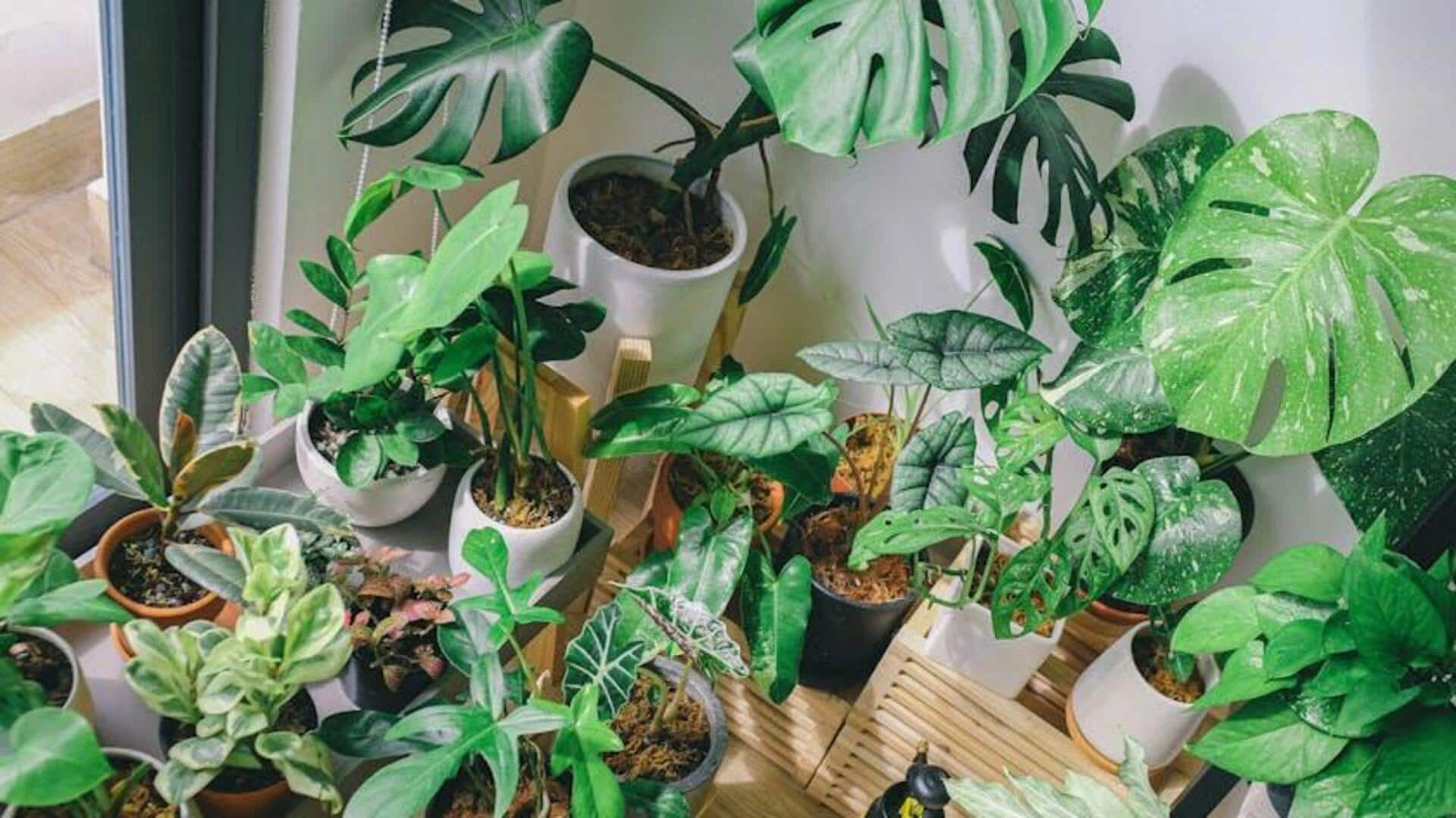
5 ways to protect your houseplants from pests
What's the story
Indoor plants can be a wonderful addition to any home, lending aesthetic appeal and purifying the air. But did you know that aphids can be a real threat to your green buddies? Knowing how to nurture aphid-proof indoor plants is essential for making them glow with health. Here's looking at practical tricks that can keep your indoor plants away from these pesky pests without resorting to harsh chemicals or complicated methods.
Plant selection
Choosing the right plant varieties
Choosing plant varieties that are inherently resistant to aphids is a great first step to avoid infestations. Some plants have inbuilt defenses against these pests, thus making them less appealing targets. Try adding species like ferns, succulents, or herbs such as mint and basils to your indoor garden. They not just add diversity but also decrease the chances of aphid problems significantly.
Environment control
Maintaining optimal growing conditions
Creating an environment that discourages aphids has a lot to do with maintaining optimal growing conditions for your plants. Ensure adequate sunlight exposure and proper ventilation in the room where your plants reside. Regularly check humidity levels, as overly humid conditions can attract pests. Keeping the soil well-drained and avoiding overwatering are also essential practices in fostering a healthy plant environment.
Organic solutions
Natural pest deterrents
Using natural pest deterrents can easily keep aphids at bay without damaging your plants or the environment. Release beneficial insects such as ladybugs or lacewings, if possible, as they naturally predate aphids. Alternatively, you can make homemade sprays with ingredients like neem oil or diluted dish soap and spray them directly onto affected areas of the plant for targeted control.
Routine checks
Regular monitoring and maintenance
Consistent monitoring of your indoor plants is key to catching any early signs of an aphid infestation before it gets severe. Inspect leaves regularly for any unusual spots or sticky residue left by these pests. Prune affected areas promptly to prevent further spread, and maintain overall plant health through regular cleaning of leaves with a damp cloth.
Diverse ecosystem
Encouraging biodiversity indoors
Encouraging biodiversity in your indoor garden also establishes a balanced ecosystem that keeps pest population at bay. Use companion planting techniques by placing different species together depending on their mutual benefits. Not only does this make your indoor garden aesthetically pleasing but also reinforces each plant's defense against common threats like aphids through shared resources and protection mechanisms.